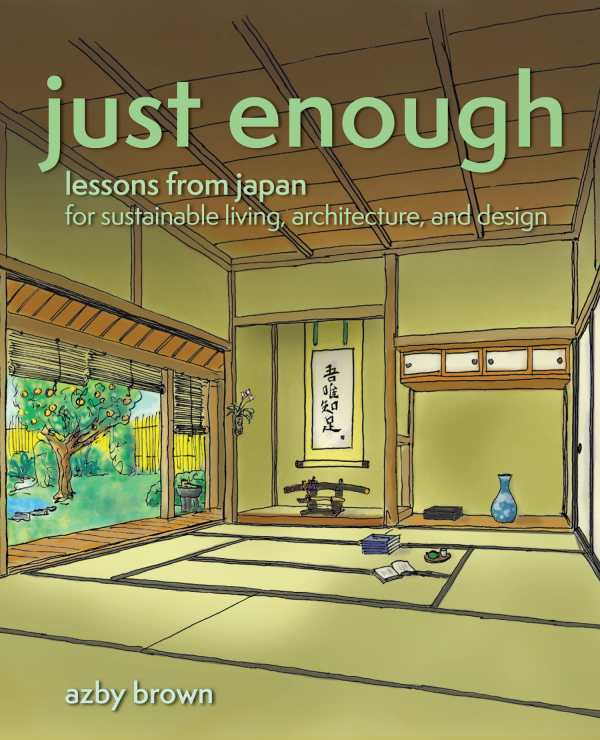It looks like you've stumbled upon a page meant to be read by our code instead of viewed directly. You're probably looking for this page.
Just Enough
Lessons from Japan for Sustainable Living, Architecture, and Design
Azby Brown looks to the past to find future methods for sustainable living in Just Enough.
Centering his studies on Edo-era Japan, Brown focuses on the concept of the “circular economy,” in which resources are preserved and perpetuated through recyclability and sustainability. Just Enough investigates three environments: a farm community, a bustling capital city, and the daimyo domiciles of powerful samurai families. Through them, it reveals the ways in which harmony can be reached between humans and nature.
The meticulous considerations of each environment include copious descriptions of daily life. Fine details abound: aqueducts supply fresh water to thousands based only on natural materials and gravity; substances like clay, bamboo, and wood find multiple uses; everyone, from the modest peasant to the highest-ranking samurai, participates in cooperative living. Just Enough also features plenty of intricate illustrations that enrich the text, whether they’re picturing rice field irrigation, the art of thatching a roof, or rivers and canals that serve as a city’s “natural” cooling system.
The depth of Just Enough’s depictions of life in past times make it an enjoyable anthropological study in of itself. Still, its primary message is subtle and unmistakable: to ensure a renewable planet, we must attain a maximum of well-being through a minimum of consumption. At the end of each major chapter, Brown ties together his historical research with precepts for better living through utilitarian simplicity, wherein zero waste is a product of good design. Thoughtful anecdotes about the Japanese ethos of communal responsibility and benefits are also incorporated.
Just Enough is an immersive study that takes a fascinating look at how ethically sound living can permeate an entire culture. It makes a persuasive case for nature-based solutions to current environmental challenges.
Reviewed by
Ho Lin
Disclosure: This article is not an endorsement, but a review. The publisher of this book provided free copies of the book to have their book reviewed by a professional reviewer. No fee was paid by the publisher for this review. Foreword Reviews only recommends books that we love. Foreword Magazine, Inc. is disclosing this in accordance with the Federal Trade Commission’s 16 CFR, Part 255.
